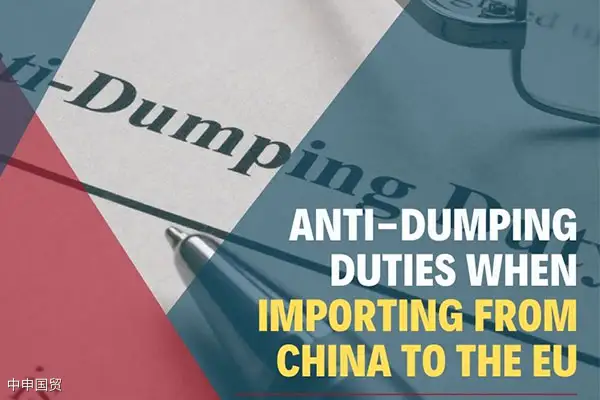- Shanghai Zhongshen International Trade Co., Ltd. - Two decades of trade agency expertise.
- Service Hotline: 139 1787 2118
Anti - dumping has now become an important measure to protect domestic industries. For example, for enterprises directly exporting manual forklifts and their main accessories to the EU, facing anti - dumping duties as high as 54.1% - 70.8%, it is particularly important to find effective response strategies. This article will discuss in detail the EUs anti - dumping framework, how enterprises can respond to anti - dumping measures, and how to obtain the lowest tax rate.

I. EU Anti - dumping and Determination Conditions
The EUs anti - dumping policy is mainly based on Regulation (EU) 2016/1036 of the European Parliament and of the Council on protection against dumped imports from countries not members of the European Union and its subsequent revisions. The determination of anti - dumping requires three conditions: the import price of the imported product is lower than the normal value; it causes material injury to the EU industry; and there is a causal relationship between the dumping and the injury. Especially in cases of market distortion, the European Commission will use the surrogate benchmark method to determine the normal value.
II. How Enterprises Respond to Anti - dumping Measures
Prevention and Preparation: Before the start of an anti - dumping investigation, enterprises should establish contact with the Ministry of Commerce, local commerce departments, and industry associations to form a four - party linkage mechanism, obtain anti - dumping early warning information in a timely manner, and make preliminary preparations for possible investigations.
Active Response and Cooperation: Once receiving the anti - dumping filing notice, enterprises should immediately form a special working group, contact trade remedy agencies, consult on matters related to responding to the investigation, and actively cooperate with the investigation, providing the required materials and information. Historical cases show that enterprises that respond actively often obtain more favorable tax rates.
Preparation of Detailed Information and Consistent Responses: Enterprises need to fill out the questionnaire carefully to maintain the accuracy and consistency of information. For on - site review, enterprises should assign employees familiar with the situation to communicate with the investigators to avoid misinformation.
Hearings and Defenses: Enterprises should strive to participate in the hearings of the European Commission, conduct no - injury defenses and margin defenses, and strive to obtain a low or zero tax rate. At the same time, they should cooperate with institutions such as the Ministry of Commerce and chambers of commerce to lobby within EU countries to strive for maximum benefits.
Price Undertakings and Adjustments: According to the preliminary ruling of the European Commission, enterprises can reach a price undertaking with the European Commission by increasing the export price or ceasing to export at a dumped price to avoid being levied an anti - dumping duty.
Legal and Policy Consultation: During the entire response process, enterprises should seek professional legal and policy consultation to ensure the correctness and effectiveness of their strategies.
Facing the anti - dumping measures of the EU, export enterprises should adopt proactive and reasonable strategies to respond. This includes prevention and preparation before the investigation, active cooperation and response during the investigation, as well as price adjustment and legal defense after obtaining the preliminary ruling. Through these measures, enterprises can not only effectively reduce the burden of anti - dumping duties but also maintain their competitive position in the international market.
Ultimately, enterprises need to recognize that anti - dumping is not only a legal issue but also a market issue. By optimizing the product structure, improving product quality, adjusting the export strategy, and strengthening communication and cooperation with the target market, enterprises can better adapt to the international trade environment and achieve sustainable development.
Related Recommendations
Core Business
Contact Us
Email: service@sh-zhongshen.com
Related Recommendations
Contact via WeChat

? 2025. All Rights Reserved. 滬ICP備2023007705號-2  PSB Record: Shanghai No.31011502009912
PSB Record: Shanghai No.31011502009912








